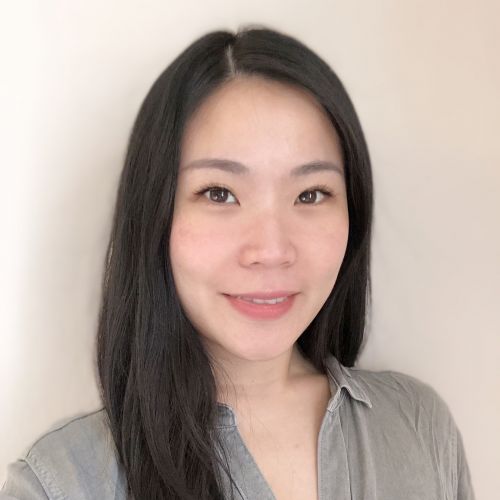A version of this article ran in the June issue of Bicycle Retailer & Industry News.
SEATTLE (BRAIN) — In the fast-moving world of e-bike brands, keeping track of who’s doing what — like Leon Cycle — is an ongoing challenge. Few dealers have heard of Leon Cycle, but it’s had a warehouse and a retail outlet in Seattle since 2019.
The company, with offices in Hanover, Germany, and Suzhou, China, has five retail outlets in North America with two stores in the U.S. — in Seattle and Santa Monica. It also has stores in Vancouver and Montreal.
Seattle’s Ballard District, where its first store opened three years ago, is considered one of Seattle’s hippest waterfront neighborhoods brimming with trendy restaurants, indie shops, bars and craft breweries. Santa Monica needs no explanation.
Annie Kao, global marketing director, said the company also has a warehouse in Seattle’s Sodo District with stores in New Zealand, Australia, Spain and France. And, at the moment, Leon Cycle is planning to open outlets in San Diego and another in Toronto.
Leon Cycle also sells its two brands — NCM and ET.Cycle — on the web through Amazon.com. It sells several dozen pedelec models ranging from traditional mountain, city, fat-tire and folding bikes with prices ranging from $999 to $1,800.
For example, its mainstay city commuter, the C-7, sports Tektro hydraulic brakes, Shimano’s Acera shifting, CTS tires, Selle Royale saddle, fenders, lights and its proprietary Das-Kit motor and controller. It’s nicely spec’d at $1,599 and when delivered from an online sale is simple to assemble.
What sets Leon Cycle apart, besides its multi-channel strategy, is its near-vertical integration of manufacturing, distribution and sales. The company has assembly partners in France, Romania and the Czech Republic and is building its own manufacturing facility in Budapest, Hungary.
Leon Cycle and its brands are part of the Leisger Group, founded in Germany by Leon Ding. His family has a long history in the e-bike business and in 1998 began importing Japanese-made e-bikes into China, Kao said. Ding is the company’s CEO. He studied electronic engineering at Leibniz University in Hanover graduating in 2005. He later set up the Leisger Corporation in Hanover in 2007.
After returning to China, Ding’s company focused on original design manufacturing (ODM) as well as R&D in the e-bike industry. In 2014 Leisger launched Leon Cycle in Germany, its first market.
With offices in Suzhou, about 62 miles west of Shanghai, the company boasts deep ties to the Chinese e-mobility sector. “That means that we have long-established relationships with our suppliers and access to very favorable terms,” Kao said in an email exchange with BRAIN. Kao is currently in China.
The company recently invested $25 million in a new manufacturing facility on land that it owns in Suzhou, a major center for e-bikes, motors and controllers. Bafang, for example, has a factory there. “The fact that Leon Cycle itself employs a B2C and a D2C business model means that our return on investment is faster; the lack of a middle-man also means our margins are higher,” Kao said, noting that those factors are spearheading its growth and expansion.
According to Kao, its current revenues are approximately $150 million and it’s on track to sell about 100,000 units annually.
To add another angle to the Leisger Group, the hub motor and controller the company currently uses in all its models is dubbed Das-Kit — the company’s original line. However, it also owns the intellectual property from the former Canadian company BionX. Founded near Ontario in 2000, BionX hub motors were highly regarded at the time and spec’d by companies like Trek, Kalkoff and others.
But in February 2018 BionX Canada went into receivership, 80 employees were let go, and the company was shut down. Later that year, the company’s intellectual property, patents, trademarks, software and remaining inventory were sold to Amego Electric Vehicles and Leisger Cycle, Inc. Amego is a Toronto retail and online store that sells Leisger’s NCM and ET.Cycle brands as well as others.
“Moving forward, BionX motors will be manufactured at our new facility and will be incorporated into all of our higher-end e-bikes,” Kao said.
Leisger faces the same supply chain issues, logistics and rising costs for materials as any other company in this industry and others. But Kao said the company is well-positioned to weather the market changes. It has a stable relationship with Maersk, the global shipping company; it’s close to its suppliers in China, and has key partners in Europe.
Managing battery costs is another area challenging suppliers. The company recently made a quick switch from 18650 batteries in its bikes due to high demand, particularly from Tesla. That forced the company to switch to costlier 21700 batteries, a higher energy product. Still, Kao said the company made the switch while maintaining strict cost controls.
“Put simply, we have the advantage of being able to navigate rising costs by maintaining our extremely strong supply chain management,” she said. Kao added that at the moment the company has no plans to increase prices. And Kao is bullish on the future. “We think that the overall market is extremely promising, which is why we’re expanding all over the world, not just in Europe. But, of course, that does pose challenges,” she said.


